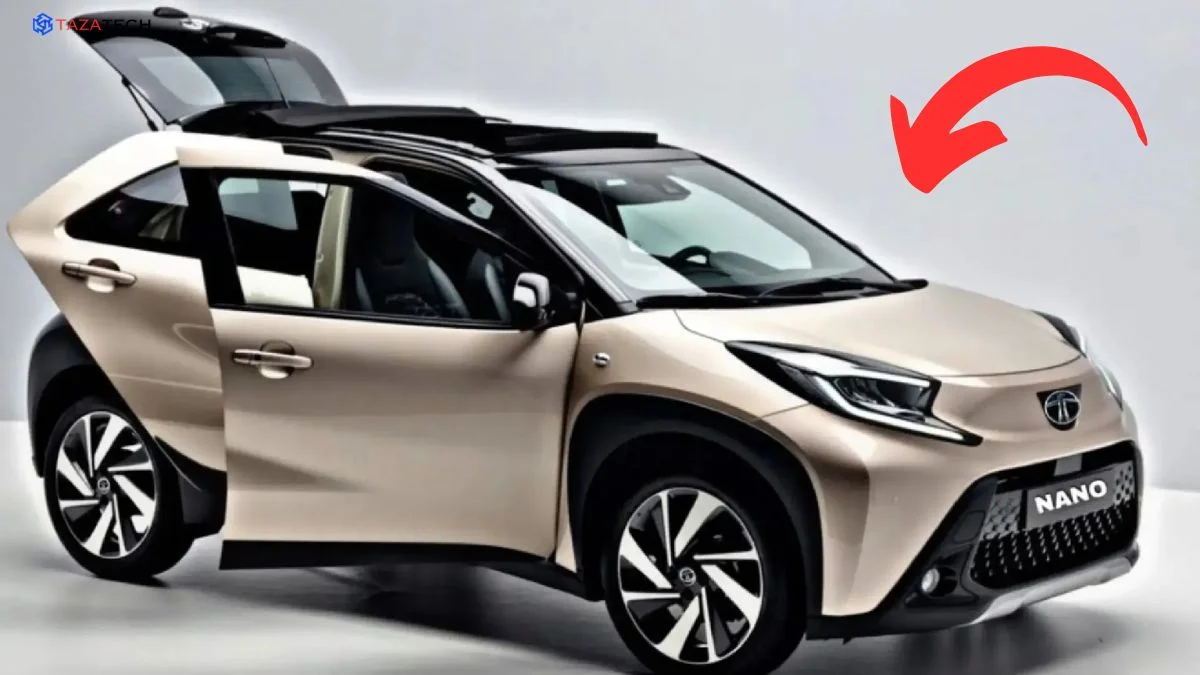Tata Nano EV: Tata Motors is set to make history again by reintroducing the iconic Tata Nano EV as an all-electric vehicle (EV). Once celebrated as the world’s most affordable car, the Tata Nano electric car now emerges as a cost-effective and sustainable solution tailored for the Indian market.
This article delves into everything you need to know about the Tata Nano EV price, features, specifications, and why it is poised to revolutionize urban mobility in India.
A Vision Revitalized: From the People’s Car to a Green Revolution
Launched in 2009, the Tata Nano was envisioned by Ratan Tata to provide millions of Indian families access to affordable personal transportation. Despite its initial hype, the Nano faced challenges and eventually ceased production. However, its innovative concept has found a new purpose in the rapidly growing EV market.
The Tata Nano EV signifies Tata Motors’ commitment to sustainability and aligns with India’s transition to electric mobility. Reviving the Nano as an EV demonstrates the automaker’s ability to adapt to market demands while honoring Ratan Tata’s original vision.
The Evolution of the Tata Nano EV
The journey of the Nano toward electrification began over a decade ago. Early discussions about an electric version started around 2010. By 2022, Tata Motors and Electra EV—a Tata-backed company—presented Ratan Tata with a customized electric Nano. This prototype, equipped with a 72V lithium-ion battery pack, could accelerate from 0 to 60 km/h in just 10 seconds.
The success of this prototype cemented the feasibility of a Tata Nano EV for mass production.
Key Features and Specifications of the Tata Nano EV
The Tata Nano EV features are designed to cater to urban commuters, offering convenience, performance, and affordability. Here’s what we can expect:
1. Range and Battery
- Estimated range: 160 km per charge, ideal for daily commutes and short trips.
- Powered by Ziptron technology, known for efficiency and reliability.
2. Performance
- Top speed: 110 km/h, making it suitable for city driving.
- Responsive acceleration to navigate urban traffic effortlessly.
3. Charging Capabilities
- Fast-charging options for convenience, reducing downtime for users.
4. Advanced Features
- Modern interiors, including a touchscreen infotainment system, semi-digital driver’s display, and rear parking sensors.
- Enhanced safety features, addressing past concerns and meeting today’s stringent standards.
Strategic Pricing: Making EVs Affordable for All
Price will be a crucial factor in the success of the Tata Nano EV. Analysts predict it will cost between ₹4 lakh and ₹6 lakh, positioning it as one of the most affordable electric cars in India. This pricing strategy offers multiple benefits:
- Competing with Entry-Level EVs: Positioned as a cost-effective alternative to Tata’s Tigor EV and Nexon EV models.
- Converting Petrol Car Buyers: Providing a budget-friendly electric option for those transitioning from fossil fuel vehicles.
- Appealing to Two-Wheeler Owners: Attracting individuals seeking safer and more comfortable transportation.
Manufacturing and Production: Scaling Up for Demand
Tata Motors plans to manufacture the Tata Nano EV at its recently acquired plant in Sanand, Gujarat. The facility, formerly owned by Ford, has an annual production capacity of 420,000 units. Tata Motors is investing ₹2,000 crore to upgrade the facility, ensuring it can meet the anticipated demand for the Nano EV.
Transforming Urban Mobility and Driving EV Adoption
The Tata Nano electric car is poised to create waves in India’s automotive market. Here’s how:
1. Accelerating EV Adoption
With its affordability, the Nano EV is expected to attract first-time car buyers and those upgrading from two-wheelers, thereby increasing EV adoption in India.
2. Reducing Urban Congestion
Its compact size and zero-emission design make it ideal for city use, helping reduce traffic congestion and air pollution.
3. Challenging Competitors
The Tata Nano EV’s launch may force competitors to accelerate their plans for budget-friendly EVs, reshaping the affordable EV landscape.
Also Read: Maruti Suzuki XL6: The Perfect Blend of Style and Comfort You Can’t Ignore
Challenges and Opportunities for the Tata Nano EV
Challenges:
- Battery Costs: Ensuring an optimal balance between price, performance, and range.
- Charging Infrastructure: Expanding India’s charging network is essential for user convenience.
- Market Competition: Competing with other affordable EVs in the pipeline.
- Consumer Perception: Overcoming the legacy of the original Nano and establishing the EV as a modern, desirable product.
Opportunities:
- Market Leadership: Success with the Nano EV could establish Tata Motors as a leader in affordable EV technology.
- Global Appeal: Its affordability could make it attractive in emerging markets worldwide.
- Ecosystem Development: Stimulating growth in India’s EV component industry and creating job opportunities.
Ratan Tata’s Legacy Lives On
The Tata Nano EV also highlights the enduring influence of Ratan Tata. Even after his retirement, his vision for the Nano as a revolutionary car has continued to inspire innovation. In fact, Ola Electric founder Bhavish Aggarwal credits Tata and the Nano EV project as significant influences in shaping his company’s approach to EVs.
The Future of Affordable Electric Mobility in India
The Tata Nano EV represents more than just a car—it’s a movement toward democratizing electric mobility in India. By offering a sustainable and affordable electric vehicle, Tata Motors is helping India transition to a greener, cleaner future.
If successful, the Nano EV could inspire other automakers to focus on affordable EV options, accelerating India’s journey toward widespread electric mobility.
Conclusion: A Game-Changer for the Indian EV Market
Scheduled for a 2025 launch, the Tata Nano EV brings the “people’s car” back to life in a new, electrified avatar. Its promise of affordability, sustainability, and innovation makes it a potential game-changer in the Indian EV market.
As Tata Motors reimagines the iconic Nano for the electric era, the Tata Nano EV’s success could reshape India’s automotive landscape, making EVs accessible to millions while driving a sustainable future.
